Before & After
Dental Bonding - Before and After

Curious about what dental bonding can do for your smile?
Dental bonding is a great way to improve the appearance of your teeth without having to go through surgery. Our dentists are experts in this procedure and may be able to help you achieve the smile you always wanted. You don’t have to be embarrassed about your smile any longer. Dental bonding can fix chips, cracks, and other imperfections quickly and easily. And thanks to the advancements in dental technology, dental bonding looks more natural than ever before. Just take a look at our before and after photos to see for yourself.
Dental Bonding - Before and After Pictures
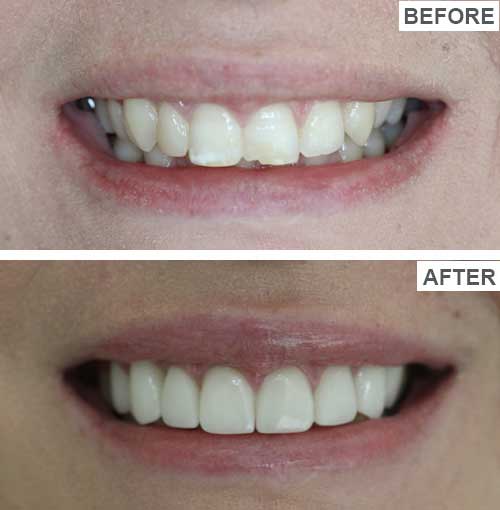
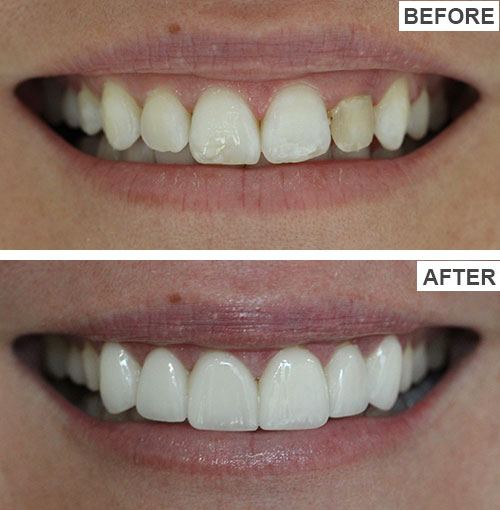
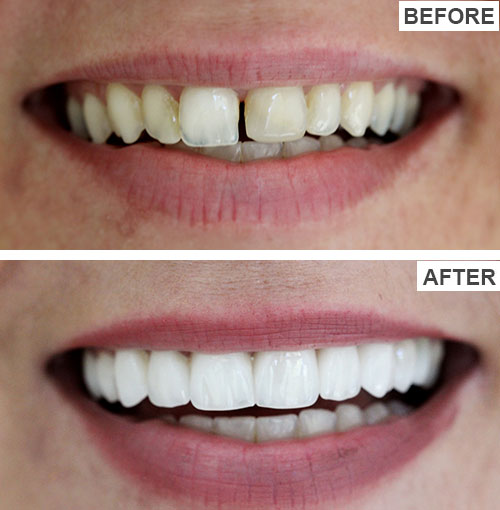
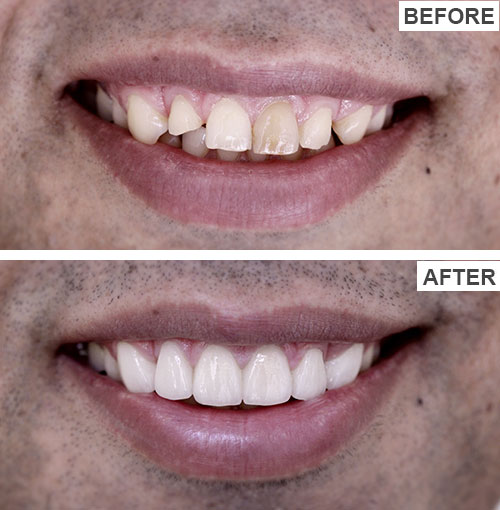
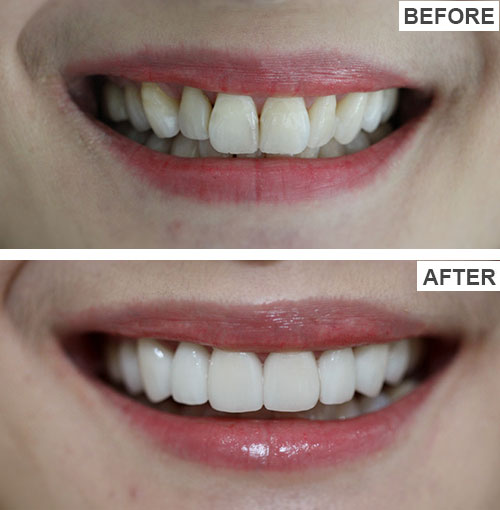
Things to Know Before You Get Dental Bonding
If you’re considering dental bonding, there are a few things you should know first.
1. Procedure can be done in just one visit
If you don’t have time for multiple dental visits, bonding might be a good option for you. The procedure can usually be done in just one visit to the dentist.
2. Usually, you don't need anesthesia
Most people don’t need anaesthesia for dental bondings. If your dentist is going to bond a large area, you might be given a local anesthetic to numb the area.
3. It may be used to fix a variety of dental problems
Dental bonding may be used to fix a number of different dental problems, including:
- Chipped teeth
- Cracked teeth
- Gaps between teeth
- Misshapen teeth
- Stained or discoloured teeth
4. Bonding usually lasts for 3 to 5 years
With proper care, dental bonding usually lasts for 3 to 5 years. After that, it will likely need to be replaced.
5. It's not as strong as other options
Dental bonding is not as strong as other dental options, such as veneers or crowns. It’s more likely to chip or break than other options.
6. It's not suitable for everyone
Dental bonding might not be suitable for everyone. If you have very large dental problems, bonding might not be the best option. Your dentist will be able to advise you on whether or not dental bonding is right for you.
7. Health insurance covers dental bonding
Health insurance usually covers dental bonding. However, you might have to pay a deductible or copayment. Check with your insurance company to see what is covered.
8. May help with sensitive teeth
Dental bonding may help with sensitive teeth by protecting the root of the tooth.So if you feel like you may need dental bonding, talk to one of our experienced dentists. They may be able to tell you if it is the right option for you.
Things to Know After You Get Dental Bonding
1. You might feel some sensitivity
After you get dental bonding, you might feel some sensitivity in your teeth. This is normal and should go away within a few days. If the sensitivity doesn’t go away, or if it gets worse, call your dentist.
2. Avoid hard foods
You should avoid hard foods for the first few days after you get dental bonding. This will help prevent your bonding from chipping or breaking.
3. Be careful with your teeth
You need to be careful with your teeth after you get dental bonding. Avoid chewing on hard objects, such as ice or hard candy. This can damage your bonding.
4. Brush and floss regularly
You should brush and floss your teeth regularly to keep them healthy. This will also help prevent your bonding from getting stained.
5. See your dentist for regular checkups
You should see your dentist for regular checkups. They will be able to check on your bonding and make sure it is still in good shape.
6. Get your bonding replaced when it starts to wear
You will need to get your bonding replaced when it starts to wear down. This is usually after 3 to 5 years.So if you have just gotten dental bonding, be sure to follow these tips to keep your teeth healthy. And if you have any questions, feel free to ask us or consult with one of our experienced dentists.
Related Blogs
No posts found!

